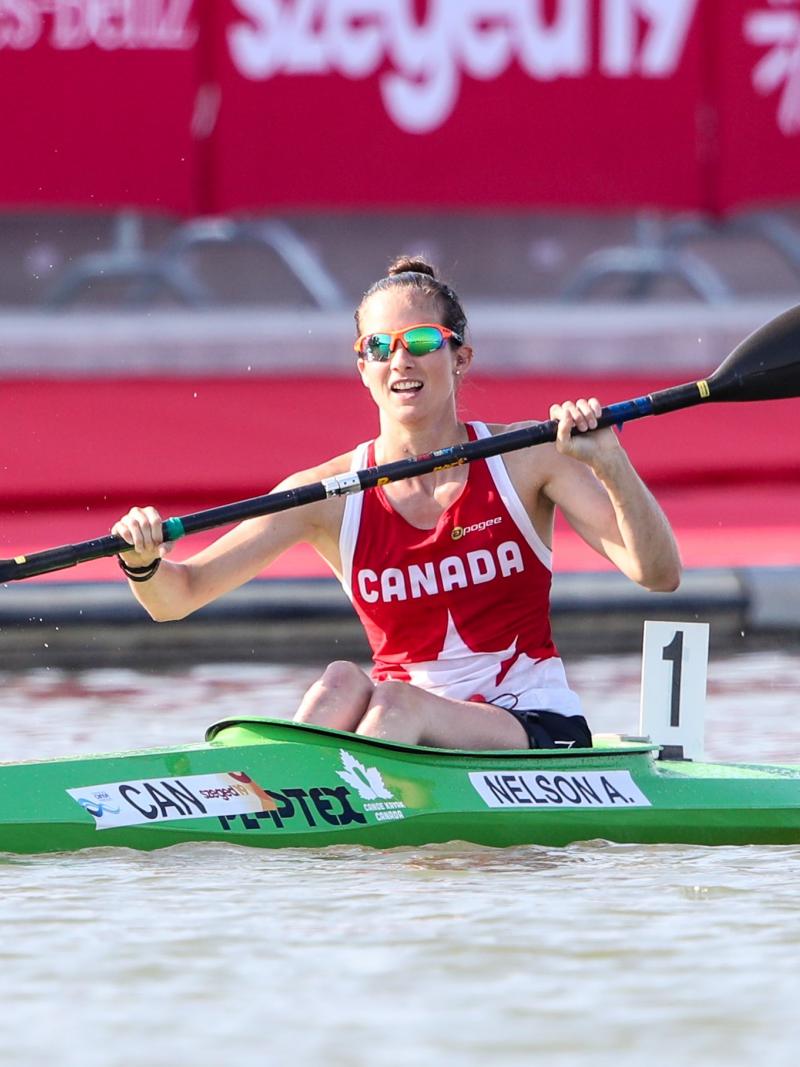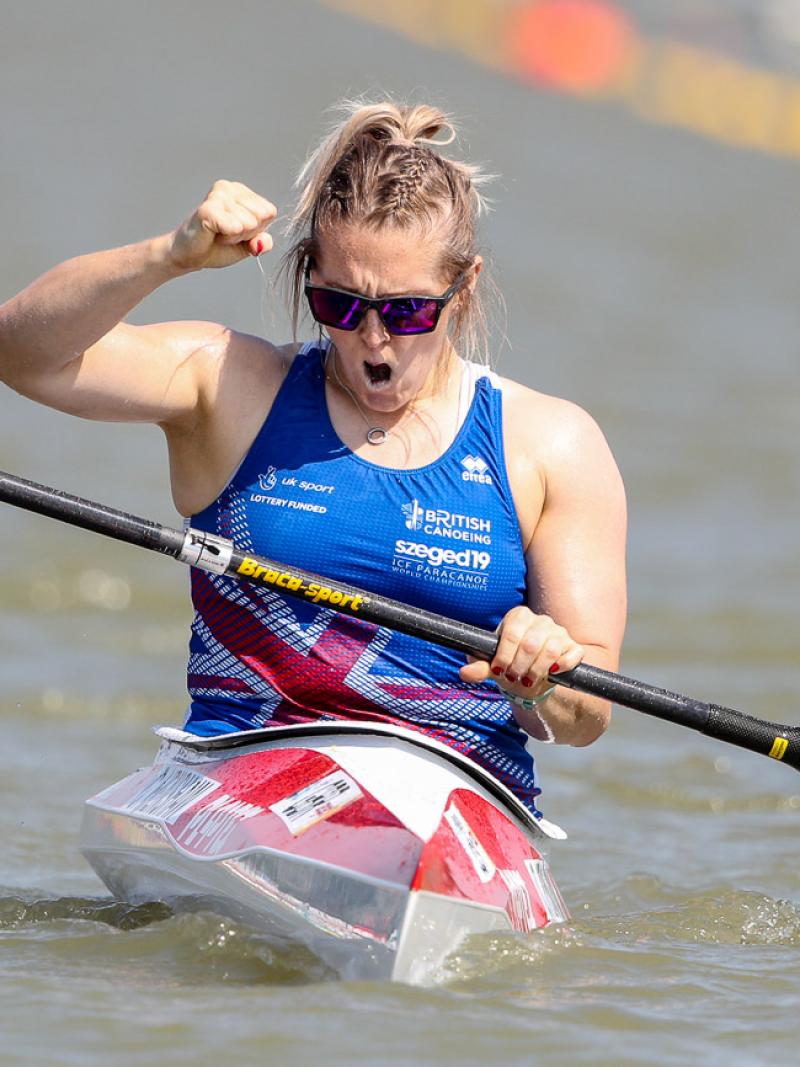Hopes for Paralympic gold motivates Esteban Farias through pandemic
Italian Para canoeist has a world title but now wants to top off with Paralympic hardware in Tokyo 24 Jun 2020Esteban Farias was training with the Italian Para canoe team in Cagliari, Sardinia, when the first news came about COVID-19 virus reaching the country.
His focus back then was on the 2020 Paralympic Games after achieving qualification at the 2019 World Championships in Hungary, where he won silver in the KL1 category.
But everything changed.
“We had special permission from the National Federation and the Government of Italy to continue training, because we are international athletes," Farias explained.
As the coronavirus began spreading throughout the country and Tokyo 2020 was postponed, Farias flew to Cremona, the city where he lives in the region of Lombardy, where the COVID-19 hit especially hard.
Two-time world champion Farias used to train in the Po river. But once Italy implemented a national lockdown, he had to find new creative ways to stay fit.
The 35-year-old turned the parking lot at his building into his own gym, doing weight training and aerobic work in that place for weeks.
The postponement of the Paralympics to 2021 was another hard pill to swallow for the Italian, who admitted he was “sad and bitter."
“I had trained for three years, with a lot of fatigue, a lot of work," he said. "We know that waiting another year is a lot for an athlete like me at 35 years old. We will see what I can do.”
As Italy relaxed quarantine restrictions, Farias returned to the water, where he feels better.
"A month of not going out in the kayak was bad for me. Being in the river, in that open space, I missed it. I felt like something was missing. Being the water makes me feel good, free in the middle of nature".
Master Confectioner
The son of an Argentine father and an Italian mother, Farias was born in 1984 in San Martin, a town in the province of Buenos Aires, Argentina. At the age of three he moved with his family to Sicily, an island off Italy. He lived there until he was 20, when he packed his bags and left for Reggio Emilia, in the north of the country.
It was there that he became skillful at confectionery at the Pasticceria Oasi. He used to prepare from cornetto, like a French croissant, to the Thousand Layers (Milhojas) Cake, his specialty.
However, he said it was tough for him to keep up with the routine. "I was a very young boy, I was 20 to 25 years old at the time, and it was very hard to get up every day at three in the morning and work until 11 or 12 at midday, it was quite stressful."
Back then, Farias enjoyed playing football as a goalkeeper and watching AC Milan playing.
From painting to sports
He got tired of working as a confectioner and switched to painting. Back then, he had booked flight tickets to Argentina to visit his grandmother. But one day while painting a wall of a house, he fell four metres and lost the mobility of his legs.
“It was 2009, I was 26 and weighted 72kg. Until 2014 I did nothing, just rehabilitation. I gained lots of weight and said: “I need to do something to improve my life a little bit.”
Farias tried several sports until a canoe coach from the Sociedad Canottieri Lionida Bissolati named Nicola Cervati introduced him to the sport in a pool.
"I signed up to do some sport to improve in body and mind," he confessed. "At first it was a little strange because I got into a small kayak for five minutes in the pool. I would advance two or three metres and then would fall into the water. It was difficult to find the balance; the sensation of the movement was not easy.”
He took on the challenge step by step. "I thought in that month I had to do five more meters than in the previous month, or whatever. First the kayak was small, two meters, and then a little bigger, three or four meters, until I reached the Olympic boat after two or three years.”
When he managed to get out of the pool to practice on the Po River, he was "very happy and content to take another step towards my independence and self-esteem.”

 Facebook
Facebook
 Instagram
Instagram
 Twitter
Twitter
 Youtube
Youtube
 TikTok
TikTok
 Newsletter Subscribe
Newsletter Subscribe



